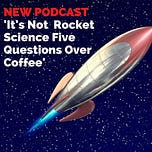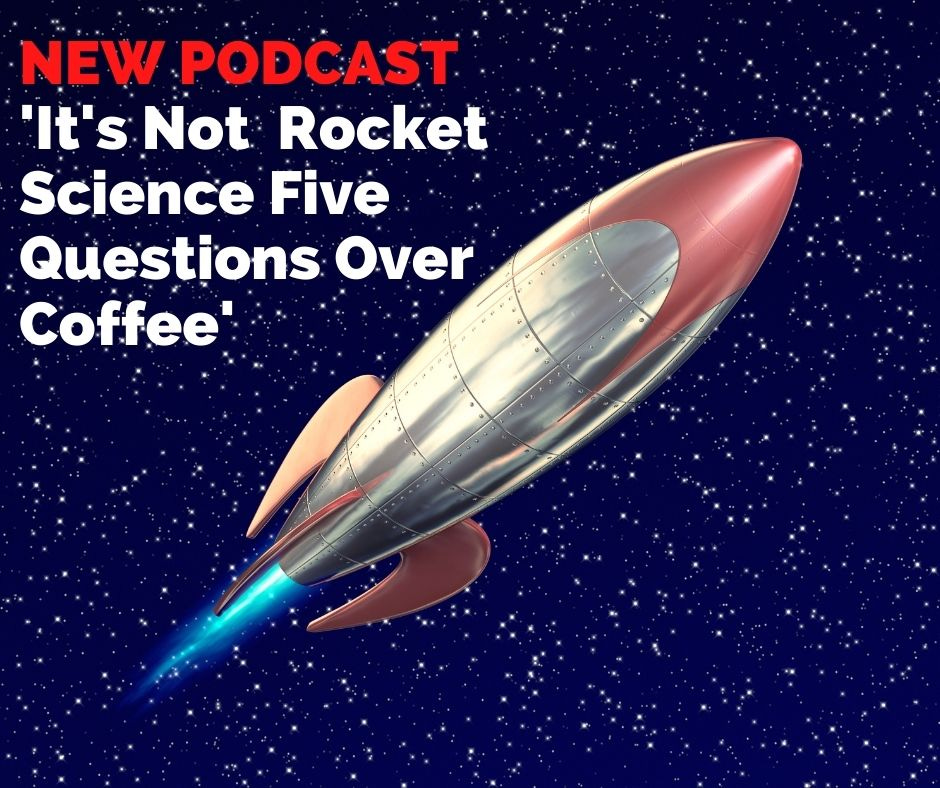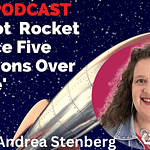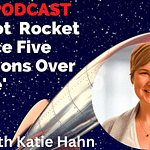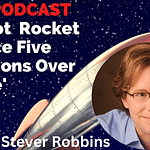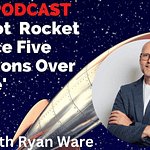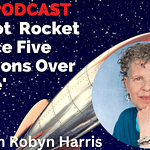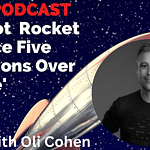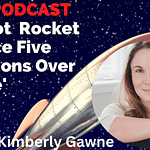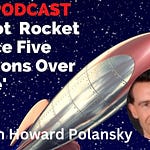Who is Edmund?
Edmund Bradford is a successful entrepreneur known for his expertise in online gaming and business consulting. With a degree from Warwick Business School, he has built a global client base, including prestigious universities and large corporations like Airbus. His work extends far beyond traditional business schools, as he conducts Middle East chat sessions and collaborates with diverse clients all over the world. Edmund's innovative approach and ability to work with complex international organizations have earned him a reputation as a highly sought-after consultant in the gaming and business industry.
Key Takeaways
00:00 Business schools and corporations face similar challenges.
05:28 Company teaches engineers profit through transformative game.
07:29 Deliberate practice crucial for learning; failure essential.
10:36 Misuse of strategy in business can mislead.
16:11 Debate on organization's values and stakeholder returns.
18:56 Ask about sustainability cup, involvement, and organizations.
21:30 Encouraging message about sustainability and business growth.
23:44 Announcing guest and expressing gratitude for event.
Valuable Free Resource or Action
www.market2Win.academy
A video version of this podcast is also at
_________________________________________________________________________________________________
Subscribe to our newsletter and get details of when we are doing these interviews live at https://TCA.fyi/newsletter
Find out more about being a guest at : link.thecompleteapproach.co.uk/beaguest
Subscribe to the podcast at https://link.thecompleteapproach.co.uk/podcast
Help us get this podcast in front of as many people as possible. Leave a nice five-star review at apple podcasts : https://link.thecompleteapproach.co.uk/apple-podcasts and on YouTube : https://link.thecompleteapproach.co.uk/Itsnotrocketscienceatyt!
Here's how you can bring your business to THE next level:
If you are a business owner currently turning over £/$10K - £/$50K per month and want to grow to £/$100K - £/$500k per month download my free resource on everything you need to grow your business on a single page :
It's a detailed breakdown of how you can grow your business to 7-figures in a smart and sustainable way
————————————————————————————————————————————-
Transcript
Note, this was transcribed using a transcription software and may not reflect the exact words used in the podcast)
SUMMARY KEYWORDS
sustainability, marketing, strategies, business schools, corporations, simulation games, university, competition, change management, leadership, consulting, SWOT analysis, deliberate practice, strategic planning, sustainable business, sustainability World Cup, education, training, workshops, postmortem analysis, leading change, force for good, innovation, adaptation, strategy execution, marketing plan, academic, corporate clients, economic strategy, profit generation, business sustainability
SPEAKERS
Edmund Bradford, Stuart Webb
Stuart Webb [00:00:21]:
Hi, and welcome back to It's Not Rocket Science 5 questions over coffee, which is what I have In front of me here, I hope my Edmund has got something similar. It's Edmund, well done. I'm delighted today to be joined by Edmund Bradford. Edmund is, a hugely experienced founder, owner, and managing director of Market two Win, which produces sales and marketing and sustainability games for university business schools and corporations. It's gonna be a fascinating conversation. Not only that, he's the author of Marketing Navigation, How to Keep Your Marketing Plan on Course To implementation success, which I think is gonna be brilliant. I'll put links to that in the show notes. He's a guest speaker at many universities, Teaching associate at Warwick University, great university in England, and a judge at the International Business Awards.
Stuart Webb [00:01:13]:
And I know he's gonna make mention of some other Judging and things that he's gonna be doing. So, Ed Edmund, welcome to It's Not Rocket Science five questions over coffee.
Edmund Bradford [00:01:24]:
Thank you, Stuart. It's a pleasure to be here with you.
Stuart Webb [00:01:27]:
I'm I'm really looking forward to this conversation. Edward, do you want to just start off by trying to Describe, you know, who it is that you're trying to reach with with not only the stuff you don't market to win, but also all of the the the the university and And business school stuff that you that you help students with.
Edmund Bradford [00:01:42]:
Yeah. Sure. It's, I'll I'll try and keep it quick because it's not easy, question to answer, actually. I just I should I should tell I should tell him an introduction. But I think we have 2 we have 2 broad, kind of ideal clients if you like. So, One is on the academic side, the education side. So those are those business schools that that you mentioned at the Stuart. University business schools, wherever they are around the world.
Edmund Bradford [00:02:05]:
So our games are online, so they don't have to be, you know, a brilliant business school Like Warwick, they could be anywhere in the world, and our clients are are all over the place. I'm doing a a Middle East chat, after you after you finish here. So, yeah, University Business School is one type of client. And then on the corporate side, yeah, I think sort of, you know, the the the big Corporations are also really good good client for us. Airbus is one of our clients as well. So that type of big, you know, complicated International organization is also a great a great client for us to to work with.
Stuart Webb [00:02:39]:
And and and the work you do with these, Challenges, these these these cups, they're they're they're ways of of helping people as well, aren't they? They're things that you you bring to To to to really sort of help challenge people to think more about what they're trying to do.
Edmund Bradford [00:02:55]:
Yeah. I think, the sort of challenges that they have, I think I think that it's interesting because the the the challenge is very similar. Whether you're a business school or a big corporation, you're both competing in a very, intense, marketplace. Business schools, even in the UK, business schools have lots of competition, especially, sort of master's level, especially MBA level. It it goes right down to to under undergraduate level as well, often competing on a on a global stage. And the same, of course, with with big corporations. We know we know they they live in highly competitive and and fast changing market. So The the kind of challenge they both share in a way is is, you know, how to get control of that and how to develop a kind of proactive strategy to to get through all that.
Edmund Bradford [00:03:44]:
So, and and my my work, if you like, whether it's, As, you know, doing the game stuff or or just standing up there and and doing a bit of training. It's often around helping them to get a a a growth strategy together That will help them. Well, they do it now if it's a corporation or help them do it in the future, if they're if they're a student at the at the university. So finding a way through that. Yeah.
Stuart Webb [00:04:08]:
Yeah. And so so what is it that that others are doing which which, you know, you find these approaches particularly with with things like market When I just put your website on the, on the screen for people to see, which is which is going across market to win coffee. Well, what is it You're finding that others are doing Webb where market to win, it does differently. What what what is it they try other people have tried before with which you're trying to sort of help them to get through?
Edmund Bradford [00:04:34]:
Yeah. I think, I mean, it's a it's a very good question. The I mean, the market, even my market, you know, if if I'm talking about developing, you know, strategies, it's a very crowded market. You know, they've got the big consultancies in there as well as, you know, individuals. And actually I mean, I I started Market Twin, 18 years ago, because, one of my big corporate clients at the time, we were doing some some strategy work with them, And we're doing the usual stuff of of coming in there, running a 2 day workshop with lots of, you know, lots of engineers and and over functions in the room. We'd produce, in this case, a marketing plan on a flip chart, you know, and then the we'd walk off, and I I know damn well that they're not gonna look at it for another 12 Until we have the next workshop. So I was I was thinking this, you know, this isn't right. And we actually went into a, a 2 day session with that with that Client Webb they actually it wasn't my session.
Edmund Bradford [00:05:28]:
It was another session run by another company, and they were teaching the engineers, how to understand profit. And what really made a difference was the fact they had a game, a little a little over simple table game that was used to help them learn profit, it was really transformative. The whole experience was transformative. And so I thought about that, and it's 18 years ago, that that what we need what I needed to do if I was going to help, You know, my clients understand, you know, the importance of of getting a business strategy, particularly an external market strategy right, is that, we needed to experience it a bit. And so we Webb developed a game, about 18 years ago, and we we started to to to to play with that. And and now the idea it's obviously evolved over over many many years, and so now the idea is is that we have teams of people playing this online game Against each other in a sort of a a fictionalized world, always based on a real industry, but we kind of gained it. And they they learn, you know, all the issues that you have to deal with as a, you know, as a chief marketing officer or as a CEO in in developing a successful and competitive strategy. So I think, And I think in a nutshell, you know, what what Webb do that others don't, it's the it's the game, and it and it gives them the the the skill, Not just the knowledge from reading books or attending lectures or going to training, but because we're practicing it, it gives you the practice Of of actually applying some of those those really good ideas.
Stuart Webb [00:06:54]:
Yeah. Deliberate practice.
Edmund Bradford [00:06:55]:
Yeah. Absolutely. Yeah. And it's all in little cycles. You know? It's not it's not let's Let's read a book for 3 months and then execute for 3 months. It's about let's do that, you know, over you know, ideally, it could be a 2 day workshop, it could be if it's a university running it over over, you know, several weeks, during a during a semester. So, yeah, that that you know, learn it, practice it, learn it, practice it continuously over different decision rounds. Hopefully, at the end of it, everybody comes out with a bit more, bit more, you know, a bit better competence in the area and and, You know, with a bit of, enjoyment of the actual process as well.
Stuart Webb [00:07:29]:
Yeah. No. I absolutely agree. I think the the the act of practice, deliberate practice, I mean, it's it's a huge element of of learning, isn't it? Too many people learn by doing, and we don't give them enough opportunity to learn in Safeway in a safe an environment where failure is actually part of the learning process. I mean, I I often say to people I work with, clients of mine, You know, babies don't learn to walk by standing there and going, right now, I need to Stuart running. They fall on their bottoms several times. And as you get up from that, you think, well, that's not the way to do it. You know, the great quote of Edison, you know, on one of his experiments, it's failed when, you know, he started scribbling notes.
Stuart Webb [00:08:08]:
His assistant said to him, well, why are you talking about that? It was a failure. He said, yes. But if I wanna do that again, I now know how to do it. And that's a great example Sort of learning by doing something and and not necessarily getting it right, but saying, well, now I know what not to do Webb I know what to do different next time. Learning by doing is a huge Yeah. And
Edmund Bradford [00:08:26]:
I I I totally agree, Stuart. And and and I I sometimes learn it. You know, even in my own experience, when from looking at others, you learn more from failures When you do few successes. And and I know I know the world is full of, you know, examples of successful companies. You know, Apple is is is always mentioned, you You know, in marketing courses. But but I find that the companies that have failed, you know, the of this world, you know, the the Something that's sort of gone from success to failure very quick. I find that very fascinating. And how did that how did that happen, and what went wrong? And we can we can learn more from that, like a postmortem.
Edmund Bradford [00:09:02]:
There's a there's a great article on the Harvard Business Review about doing a a postmortem on a on a project. And we learn more from that postmortem Than we do on actually just just, you know, exploring successful companies. Because often, you know, I come five Apple. It's got the budget. It's got the experience. It's got the skills already there that we don't five, so maybe we can learn learn from looking at looking at failures.
Stuart Webb [00:09:23]:
Yeah. I I I I love your your your your idea of the the postmortem, I often I often think that we don't spend nearly enough time looking at those postmortems and learning from them, though. Too too many times people find that sort of, you know, Do the postmortem. Stick it on the shelf in a report. Never look at it again in the same way they don't look at their strategy ever again. It's a document written. I I like sometimes sort of encouraging people to do the what I call the premortem
Edmund Bradford [00:09:47]:
Yes. Which is,
Stuart Webb [00:09:47]:
you know, think about what could possibly go wrong Yes. Right now to avoid doing that. Know? Yes. Let's let's do the postmortem upfront. This has all gone horribly wrong. Right? Now let's find a way of not doing any of that. Yes.
Edmund Bradford [00:09:57]:
That's right. And I think that was that was the the the point behind the article I mentioned, I think, as well. They did. I think they looked at I think they looked at NASA and what went wrong with the with the Challenger, shuttle. And, yeah, and and And as as you know from reading the article, the issue is often about the culture in the organization, and the fact that the culture does not allow Webb know this in the UK. We see it in the post office. We see it in the NHS. The The culture doesn't allow, you know, criticism, whistle blowing.
Edmund Bradford [00:10:23]:
Yeah? It's five, no. So that's not that's not right. You know? It doesn't fit doesn't fit our thinking. So, yeah, so often the pre mortem is that is that idea of saying, well, you know, let's assume assume things go Webb, alright, what that look five, and what would what would bad look five? Yeah?
Stuart Webb [00:10:36]:
Yeah.
Edmund Bradford [00:10:36]:
And and then and then putting that back into back into back into your thinking. So, yeah, I mean, you know, there there's lots of different corners and angles and Those are aspects of of strategy, and and and I find the thing I found and it it probably I it probably intrigued a few years ago for me, Stuart. Haven't been in the business about 30 years. It only took me a few years a few years ago that that the job with strategy is it is is it's the most misused word in business. You you can add the word strategy to anything and think you've done it. So so I can have a pricing by putting the word strategy on the end of it. I can have a promotion strategy. I can have a Facebook strategy.
Edmund Bradford [00:11:15]:
I can have a digital a social media strategy. You know? Can have anything, any Stuart, by putting the word at the end of it, and and, therefore, I think, therefore, that I'm strategic. But the, the research has shown, actually, that that, Particularly, you know, marketers are are actually not very good at this at being strategic. And and worse than that, they don't know they're not very good. That's that's the problem.
Stuart Webb [00:11:37]:
I'm not gonna comment on those of us that haven't yet managed to work out that we are not quite as good as we think we are or indeed we're actually so stupid that we can't work out How good we are or not good at something, we'll leave that to, to politicians. So so so, Edmund, is there a there is there a valuable free gift you can leave people? I mean, obviously, we can go to market to win and learn a little bit more about what you're up to. But is there anything there that you can sort Point us to, which would be a a a great way of getting value from this idea of of approaching things with with a learning head on and the practice to go with it.
Edmund Bradford [00:12:12]:
Yep. Sure. There's 2 there's 2 2 places you can go to. So first of all, yeah, the market to win .com website's really good, if I don't say so myself. Webb are we are starting well, we are starting. What's interesting there is that we are starting a new Competition, in sustainability, which we haven't really talked about yet, but in sustainability. And I think sustainability has got a fascinating impact on strategy. And and, if you wanna participate in that competition, it's called the Sustainability World Cup.
Edmund Bradford [00:12:45]:
Just go to the Market2win Webb, go to our simulations menu, and you'll see the Sustainability World Cup under the simulations menu there. So, so go there. Have a look at that. Get in contact with us if you're interested in participating because that's gonna be running, from April, over few weeks. It's a really good opportunity for for you to Learn some of these these ideas. So that's that's option number 1. And option number 2, we actually have an academy site, Webb we we we put, you know, lots of videos and tutorials, etcetera, on there. And there's a couple of good free ones on there.
Edmund Bradford [00:13:20]:
So if you if you go also to www.market to win.academy, okay, which is a different website, then you'll see some interesting, you know, videos that we've done, on on different aspects of of strategy as well. Okay? So if you sign you just sign in for five, and and some of those tools are really good. Five, for example, we've got a really good Video on on how to do a good SWOT analysis, you know, which is always done badly Webb I when I look at them. So here there's a good video there, You know, your next swatch should be a better swatch than your your last swatch after watching that that that particular video.
Stuart Webb [00:13:56]:
I've I've Stuart my link on On there, which is www.market to win.academy.
Edmund Bradford [00:14:02]:
That's it. Thank you.
Stuart Webb [00:14:03]:
And, thoroughly suggest you go and check some of that because I know I've gone and looked at that, See, looked at the Sustainability Cup, which I hope we might get an opportunity to talk about if I if I if I come to a question in a minute where I ask You sort of, ask a question I shouldn't have asked. There's an opportunity for you, Edmund. Anyway, let's not let's not leap ahead. Obviously, you've you you're an author yourself. You've written a book. Are there any other Books or courses or anything else you think, people should be using as their inspiration for practicing in a safe way their strategies before they put them
Edmund Bradford [00:14:37]:
Yeah. I think, I mean, I'll I'll recommend a few. I think on the, on the sort of marketing side, should we say, There's there's this one, alright, which is which is this sort of bible. Yeah. That's Mark The Marketing Plans book. Okay. So that's by Professor Malcolm McDonald And Hugh Wilson. Alright.
Edmund Bradford [00:14:56]:
So that's that's a really good book in terms of how to write a marketing plan, a strategic marketing plan. That's the one that we mentioned at the Stuart, my one, if I if I can plug it on the execution side. Yeah. So that's how to execute your plan. So those 2 books together, Yeah. It's all about, you know, how to how to think about strategy, write it in a good plan, and and execute it.
Stuart Webb [00:15:17]:
And then do it.
Edmund Bradford [00:15:18]:
And do it. Yeah. And then the final one I'm gonna I'm gonna mention in terms of sort of the strategy stuff, which is which is more on the sustainability side. And, this is one that that that you can tell because I've got lots of, Post it notes in there. So Webb well read. That one's brilliant. I mean, that's about, you know, it's called Reimagine Capitalism, How Business Can Save the World, And it's it's trying to get to that sweet spot, which which we do in the the new Sustain to Win Simulation, which is about, you know, how do we Have a company that that, yeah, generates profits for shareholders, but is also a force for good in the world. Yeah.
Edmund Bradford [00:15:57]:
Very good. Rebecca Rebecca Henderson, professor Henderson, She's done a really good job of of of of talking about how that that can can be done. So those you know, if you if you wanna you know, 3 recommendations there, That that's that's those are really good books.
Stuart Webb [00:16:11]:
Obviously, we could spend the the the next 20 years debating how to make your your your You your organization, both a force for good and yet still return value to stakeholders. But let's, let's gloss over that, Before we get too deep in it, because I think that is a fascinating subject. I know it's a subject of many MBA theses in the past, some of which I'm sure you've been subjected to unless you've, unless you've managed to find your way out of that. So let's let's get on to our 4th question before we we get too deep, and I'd five to Spend more time talking about that one. But but is there a is there a a a a a question I haven't yet asked you? Is there something I haven't yet Sort of come to you and sort of said this is this is the killer question. If I was to give you the opportunity to what ask what that killer question was it, what would it be? And then, obviously, once you've asked it, you will be the only person that we could possibly turn to to answer it for.
Edmund Bradford [00:17:04]:
Yeah. I think I think the the question is what's the what's the hidden skill that you need to be a great leader, I would say. Yeah? For anyone that wants to be a great leader or whatever age you are. And I and I would say and I've been through all this myself, And and I and I was just very, very lucky in my early career, but it's catch with me all all through my life is is change. Yeah? Mhmm. If you whatever function you're in, whether it's finance, Law, you know, whatever you're doing, basically. Alright? Marketing, sustainability, whatever it is. If you wanna be successful in life, you have to Drive through change.
Edmund Bradford [00:17:37]:
And that doesn't mean to say that you need to be, you know, somebody upfront, an Elon Musk or Steve Jobs, anything like that. You know, Richard Branson, a famous A famous face. You you can lead change, as we used to call it in in my old days. You can lead from behind. Yeah? So the quiet you'd be do it quietly. So that is a that's a whole science, Stuart, of of of change. And, whatever you're doing, I think, you know, There's you're never too late to start reading up on that on that particular subject. My final book, nothing to do with me.
Edmund Bradford [00:18:08]:
Final book, I would say, you know, a good place to start is that That man there, John P. Kotter. That I probably don't have his latest book. That's probably an older version. But Leading Change by there we go. Try to get it on the slide. Leading Change by, on the screen, by John P. Coffee.
Edmund Bradford [00:18:21]:
Just go to his website. Go look up Leading Change, John P. Cotter. I think it's, kotter.com or something? But, he's got some really good principles of how to how to lead change. And, You know, everything you do, whether it's in your business life, personal life, whether it's social life, whether you're working in a sports club, you know, Whatever you're doing, it's about it's about, you know, changing things, processes, people, behaviors, organizations. Yeah. And that That is, the that's something everybody needs to understand.
Stuart Webb [00:18:56]:
Edmund, we've we've reached the end of the 5 questions have a copy, but But one thing I'm burning to ask you about is so I'm gonna deviate from my from my normal 5 questions gonna ask you a 6th question. Can you please give us a little more detail on what the sustainability cup is? Just just once again, tell us Webb do we find details, what it is you're looking for in terms of, of people sort of getting involved in that, and then I'll I'll promise I'll let you go, before I start then down the the the the path of how do we make organizations, in this capitalist world be both a force for good and force for change.
Edmund Bradford [00:19:28]:
Yeah. And that's that that that subject, by the way, Stuart, is is is is one that is has a lot of research. More research is needed, and and, you know, there's a lot of discussion about it. Not that's not definitely a closed subject. Yeah. So the the Sustainability World Cup is a is a is a new competition that we're putting together. It uses our new Sustain two Win simulation. So it's game game based game based learning.
Edmund Bradford [00:19:53]:
And, what we're looking for is for teams just like the World Cup. We're looking for teams from around the world To participate in in the World Cup, we're gonna have some nice awards handed out at the end. We've got a five bunch of judges, Stuart lined up, I believe.
Stuart Webb [00:20:11]:
Good. I figured that's right. I figured some of them are excellent.
Edmund Bradford [00:20:14]:
Yeah. Some of them might some Some of their excellent judges. We've got a fantastic set of judges to to to to judge it, and it's it's really it's 2 thing. It's a course and a competition. So, it's it's about playing the game. And just like, you know, just like anyone that plays our games, they they they learn from playing the game, but also so that's a serious side. Alright. I was in that's that's the serious five.
Edmund Bradford [00:20:36]:
But the fun the fun bit is is that because it's a game, There's there's some nice nice awards at the end. And, you know, there's some some great you know, how good it would be, wouldn't it, if if if someone on this call Signed up to play the game and ended up being our sort of sustainability leader, sustainability champion of 2024. I mean, what what a great title to have on their their CV. So, yeah, so a chance to practice some of the ideas, you know, that that that we've been talking about today in a safe environment. Yeah. And to and to to get there, Yeah. Just go to the market2win.com Webb, www.marketwin.com. Not the academy one, so that's on the coffee one.
Edmund Bradford [00:21:13]:
And, look for the simulations menu along the top, and you you see on the drop down, it will say the Sustainability World Cup. Okay. And go there and, sign up or or just drop me a message, and we'll be delighted to send you more information.
Stuart Webb [00:21:30]:
Edwin, I'm looking forward enormously to seeing what comes out of that. I know there's gonna be a sort of a a bit of a social media push, over the next few, few weeks to really sort of launch this. I think it's great initiative. I mean, it's brilliant not only for people in universities, schoolchildren, but also, you know, those who are Currently starting out in business to start to get a team around them to think about these challenges and to really push forward with How do you make your business sustainable? Not only sustainable for an environmental and, a a positive impact upon the world, But how do you make it sustainable so that in years to come, it's not some, unchanged, unwill unwanted commercial organization, But it's something that learns to adapt, change, generate ideas, innovate, and and continue. I mean, the the The the the fact that we don't have enough organizations that have been surviving 3, 4, or 500 years because they have learned to adapt and change and be adaptable, sometimes sometimes surprises me because we we do tend to coffee too short term. So I really hope that people grasp hold of the Sustainability World Cup, Look at it as an opportunity to start rethinking how to make the organization both a force for good in their community, in with their stakeholders, as well as continue to be profitable for years to come. Edwin, I think it's been a brilliant conversation. Thank you so much for spending a few minutes.
Stuart Webb [00:22:58]:
I know you are so busy. You are gonna rush off now And be all over the rest of the world trying to do the same thing.
Edmund Bradford [00:23:04]:
Yeah. I'm putting into actually, yeah, putting into action, Stuart. Yeah. Putting into action with the classic I love that.
Stuart Webb [00:23:08]:
I love that.
Edmund Bradford [00:23:08]:
The classic dudes. Yeah.
Stuart Webb [00:23:10]:
Thank you so much for spending a few minutes with us. I I really appreciate it. And, listen, just 1 last comment. If you would like to join the newsletter Get information about some of the brilliant people we have. We had a comment about, about the book that Edmund represent suggested. So if you wanna get on, make comments, ask questions of the guest, go to this address, which is, link.thecompleteapproach.co.uk Forward slash newsletter. That's link .completes.co.ukforward/newsletter. You will get, an email from me.
Stuart Webb [00:23:44]:
Very simple. Just sort of announcing what's going on, who the guest is gonna be. So you get the opportunity to join, live on LinkedIn and show that, show that you get regrets like this. I'm just gonna show, Annie Dunning It's just coffee to you. It's always such an education to work with you, Ed, at the University of Portsmouth. So you're you're making your way all the way Warwick University to Portsmouth University in the blink of an eye. Brilliantly done, Ed. Thank you, Annie.
Edmund Bradford [00:24:10]:
That's very nice. Nice to meet you, Annie.
Stuart Webb [00:24:12]:
Coming coming on and letting us know that Ed is a a decent chap, to work with as he appears. And with that, Ed, I'm gonna let you go. Thank you so much spending a few minutes with us. I'm just gonna play the outro, and, I look forward to speaking to you again very soon.
Edmund Bradford [00:24:26]:
My pleasure.

